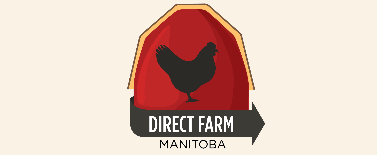Yes Michael. Let's Debate
 Wednesday, June 12, 2019 at 8:55PM
Wednesday, June 12, 2019 at 8:55PM This Letter to the Editor was written in response to a piece Conservative columnist Michael Zwaagstra wrote in The Carillon. Michael's column appears below.
Michael Zwaagstra, in his column last week, criticizes his treatment by CBC’s The Current and invites debate about controversial climate issues. OK here goes.
How the issue is framed is important. There is the overriding issue, and then there are sub-issues. I contend that Michael is focusing on sub issues and ignoring the overriding issue.
The overriding issue is that humankind is in the midst of a gigantic experiment. The experiment is to see whether humans, given the technological capacity we have now mastered, can affect our planetary environment to the extent that it will have a negative effect of future generations. Because we have only now mastered this technology, we have never before been capable of this experiment. So we cannot be absolutely certain of the outcome. We can only project based on what we know. How we approach this gigantic experiment is critical, because we will not get a chance to repeat it. The experiment is risky in the extreme. Can anyone dispute this? Is there a need for debate on this point?
Let’s then move on to issues that are disputable.
Are humans responsible for climate change? We can’t be certain because we cannot replicate what is happening in our atmosphere in a laboratory. That experiment is impossible. The atmosphere is too big and complicated. The best we can do is extrapolate from data scientists have. The vast majority of scientists agree that human activity is responsible for a significant increase in atmospheric greenhouse gases, and that this in turn has lead and is leading to a global temperature rise. There is some ambivalence on how this global temperature rise is affecting humans and how it ultimately will affect humans. No particular disastrous weather event can be attributed directly to human activity. There is disagreement on how that climate change is manifesting itself, and how it will manifest itself. There is little disagreement that it will manifest itself somehow.
The world’s glaciers are melting and the arctic is warming. Is this serious? Maybe. Most scientists think it is.
In spite of an increasing popularity of renewable forms of energy, we are still consuming oil at an increasing rate. When that supply runs out, will humans find other, equally effective, ways of capturing energy? Will we be able to develop this fast enough to avoid the collapse of our civilization. Maybe, but this requires a phenomenal faith in human ingenuity.
We are committed to and dependent on a food system built on nitrogen derived from fossil natural gas and very exhaustible deposits of phosphate mined in Florida. What will we do when these two non-renewable, but essential inputs to our food supply are exhausted? Will human ingenuity be such that we will find another way of getting our food? Maybe, but the biological knowledge that would permit this does not exist.
As I see it, the bottom line is that we, humanity, are engaged in very risky behaviour with respect to the resources we need from the planet we inhabit. How should we behave when we are living in this risky environment? That, fundamentally, is the point we need to debate.
We need this debate in our country and in our schools, but the impression I get from Michael is that he trivializes the risk and focuses on sub issues. Perhaps I am wrong. I think it is irresponsible of a teacher or the CBC to trivialize the riskiness of our corporate behaviour as it pertains to our environment. And if students then ask, “What can we do in the face of this high risk future” I would hope the answer is not merely “Make sure you turn off the lights.”
Can we agree that we cannot leave action to protect the environment with individuals? Can we agree that we need government action; that we need effective government policy? I hope so. The debate today is whether a carbon tax is good or bad. We desperately need to extend that debate! If not a carbon tax, what? On this, unfortunately the Conservatives are silent – deafeningly silent.
The Green Party is coming up in the polls. This is encouraging, but really there should be no need for a green party. It should be the conservatives calling us to responsible environmental behaviour.
Eric Rempel, Steinbach



